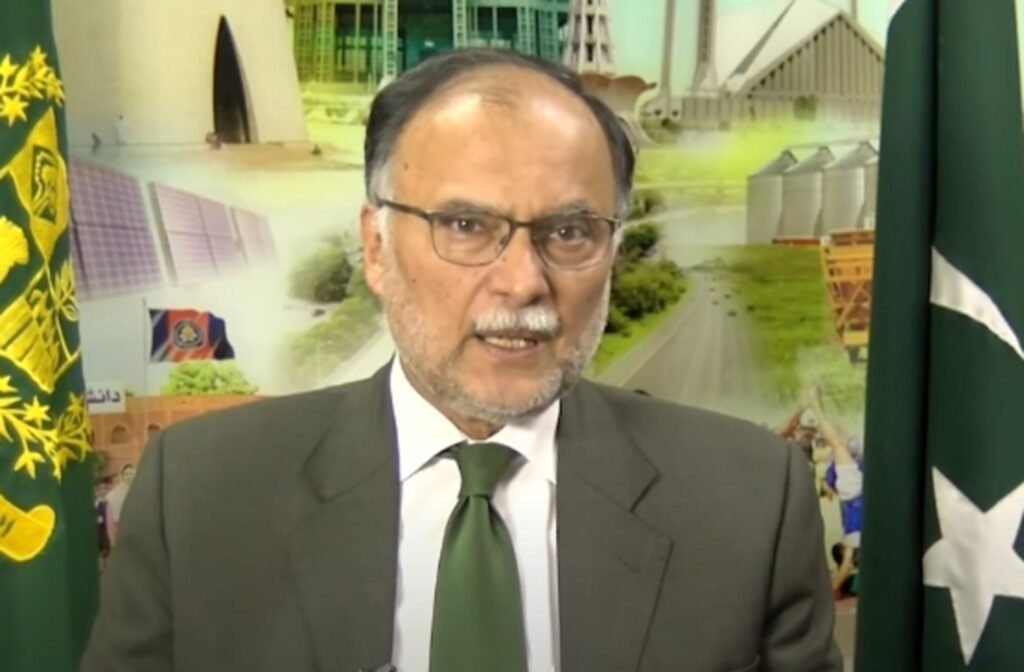Federal Minister Ahsan Iqbal states that responsibility for the K-4 water project lies with the Sindh government.
Federal Minister for Planning, Ahsan Iqbal, has addressed concerns about the ongoing water shortage in Karachi, asserting that the federal government is not to blame for the crisis. Speaking to the media after an event at the Pakistan Stock Exchange in Karachi, Iqbal explained the situation in detail, emphasizing the need for clarity and collaboration.
1991 Water Accord Safeguards Provincial Rights
Iqbal highlighted that water distribution across provinces is governed by the 1991 water accord, which ensures equitable allocation of water resources among all provinces. “No province can take water from another,” he noted, dismissing claims of federal mishandling in Karachi’s water supply.
Green Line and K-4 Projects: Divided Responsibilities
He pointed out that while the federal government has significantly invested in Karachi’s infrastructure, such as the Rs25 billion Green Line project, the K-4 water project falls under the purview of the Sindh government. Despite this division of responsibilities, the federal government has continued to support the K-4 project through additional investments.
Pakistan’s Economic Setbacks and Future Aspirations
Addressing broader economic concerns, Iqbal remarked that Pakistan’s economy is currently lagging behind by 23 years compared to the rest of the world. He attributed this setback to prolonged political instability, which has severely hindered economic progress.
Many of the country’s major corporations have zero dollar income, Iqbal said, underlining the urgent need for reforms and stability. Reflecting on past development efforts, he recalled Vision 2010, which initially set the groundwork for economic growth but was derailed by political upheaval.
“Vision 2025 aims to place Pakistan among the world’s top 25 economies,” he stated, expressing optimism despite the challenges.
Achievements and the Road Ahead
Highlighting Pakistan’s successes, Iqbal credited the nation for overcoming terrorism and energy shortages. He also emphasized the importance of the China-Pakistan Economic Corridor (CPEC), which has brought in $25 billion in Chinese investments.
Moving forward, the minister discussed the upcoming National Economic Transformation Plan, which focuses on boosting exports and promoting “Made in Pakistan” products globally. He stressed the importance of economic strategies to outpace regional competitors, such as India, and unlock Pakistan’s full potential.
The Call for Stability
Iqbal concluded with a strong message about the need for stability and unity, stating that Pakistan possesses the talent and resources to succeed. However, political conflicts remain a significant hurdle. He highlighted the production of advanced JF-17 Thunder fighter jets as an example of the country’s capabilities, urging for a focus on peace and progress to ensure sustainable economic growth.



